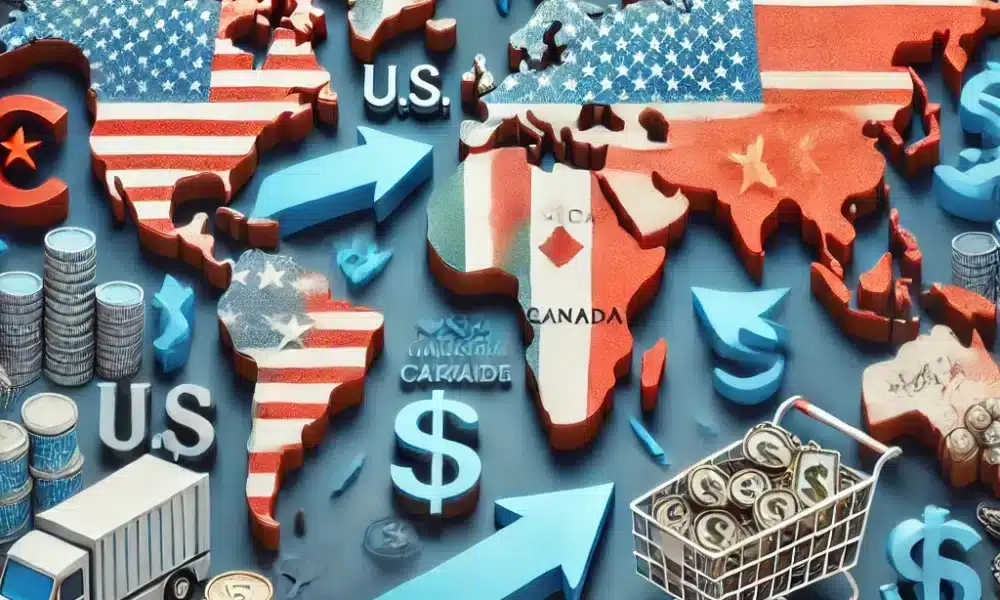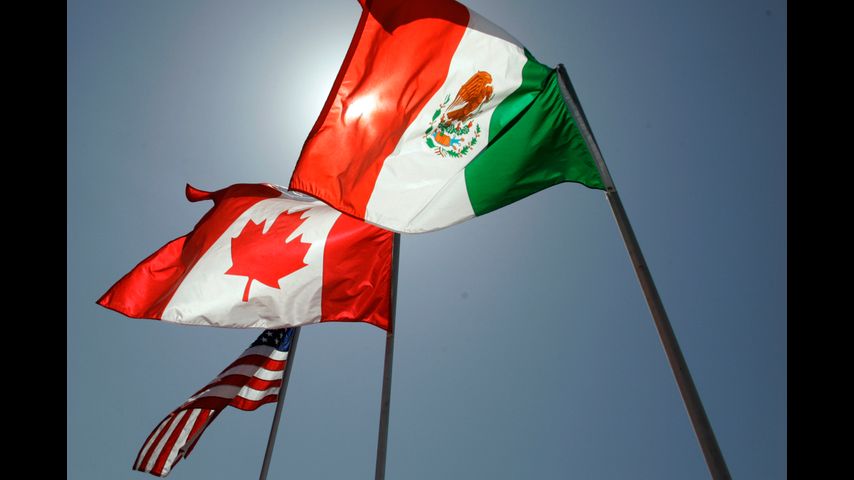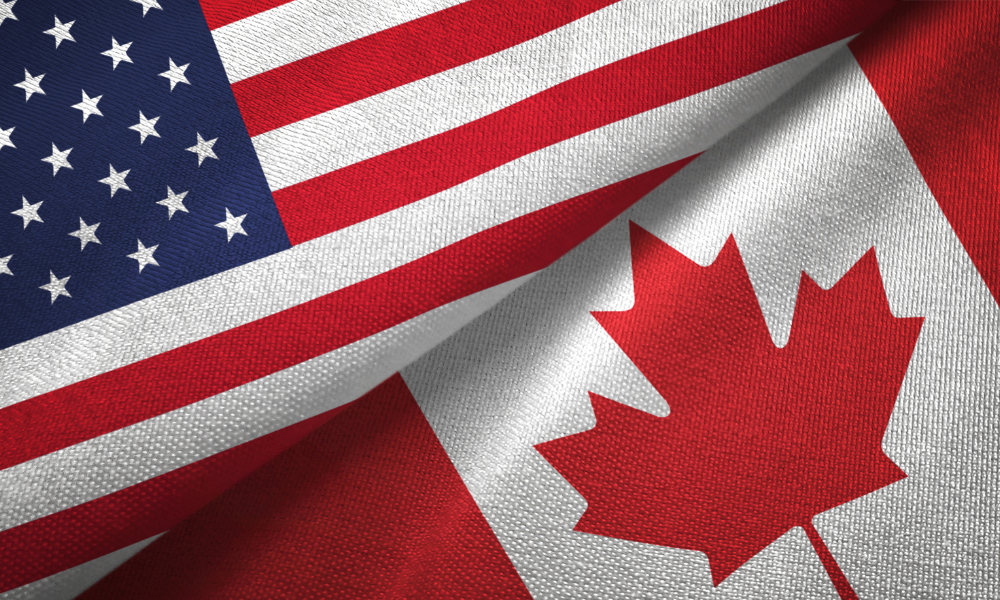






On February 1, 2025, President Donald Trump signed an executive order imposing tariffs of 10% on imports from China and 25% on imports from Canada and Mexico, citing the need to protect Americans and curb illegal immigration and fentanyl manufacturing [9fbfa357]. These tariffs, effective February 3, 2025, have prompted swift retaliatory actions from both Canada and Mexico. Canadian Prime Minister Justin Trudeau announced matching 25% tariffs on $155 billion worth of U.S. imports, expressing feelings of betrayal and highlighting the potential economic fallout [9fbfa357]. Mexico's President Claudia Sheinbaum also ordered retaliatory tariffs, rejecting U.S. accusations of government alliances with criminal organizations [9fbfa357].
In light of these developments, Trump announced a 30-day pause on the proposed tariffs against Canada and Mexico on February 3, 2025, following commitments from both countries to enhance border security and combat drug trafficking [8185a1be]. Trudeau confirmed that Canada would appoint a fentanyl czar and classify Mexican cartels as terrorist organizations, indicating a serious commitment to addressing these issues [8185a1be]. Despite the pause, the tariffs are still justified by the White House as necessary for national security and addressing drug flow, raising concerns about potential violations of the Canada-US-Mexico Agreement (CUSMA) [c3800888].
The economic implications of these tariffs are significant. According to the Brookings Institution, the tariffs could lead to an estimated 177,000 job losses in the U.S., with that number potentially rising to 400,000 if retaliatory tariffs are enacted [57b3a997]. Financial markets have reacted with caution, reflecting uncertainty about the future of U.S. trade policies, as the S&P/TSX index fell by 2.58% and the S&P 500 dropped by 1.37% following the announcement [d98465e3]. Political leaders in Canada have reacted cautiously, with Opposition Leader Pierre Poilievre urging the government to strengthen the economy, while Ontario Premier Doug Ford welcomed the delay but warned against the threats posed by Trump’s tariffs [d98465e3].
As the 30-day period progresses, the impact of these negotiations on both economies will be closely monitored. Canada has prepared countermeasures, listing U.S. goods that could be subjected to tariffs, including dairy, alcohol, and industrial materials [d98465e3]. Furthermore, Trudeau's announcement of a Joint Strike Force to combat organized crime underscores a multifaceted approach to addressing both trade and domestic issues [d98465e3]. Sheinbaum has also committed to sending 10,000 troops to the U.S. border as part of Mexico's efforts to enhance security [57b3a997].
Amid these tensions, the U.K. is positioning itself to potentially capitalize on the trade disputes. U.K. Prime Minister Keir Starmer has emphasized the importance of trade neutrality, while Finance Minister Rachel Reeves stated that the U.K. is not responsible for trade imbalances, given that the U.S. is the U.K.'s largest trading partner, accounting for over 17% of U.K. trade as of September 2024 [3d61052f]. Analysts suggest that the U.K. could benefit from the U.S. trade conflicts, with Irina Surdu-Nardella noting the limited impact on the U.K. economy and Neri Karra Sillaman highlighting potential for investment and trade partnerships [3d61052f]. Additionally, Alex King indicated that the British pound may benefit as a safe haven amidst the uncertainty [3d61052f].
The looming trade war has raised alarms about the potential economic strain on U.S. consumers and markets, with historical precedents indicating that such tariffs often lead to retaliatory measures and broader economic downturns [466b7fce]. As allies prepare to strike back, the need for a strategic trade policy that fosters alliances rather than conflict has become increasingly apparent [466b7fce]. The evolving narrative surrounding U.S.-Canada-Mexico trade relations will be critical to watch as negotiations continue and the deadline approaches. Additionally, CARICOM countries are urged to build coalitions to mitigate risks from U.S. policies that could impact regional trade dynamics [57b3a997].